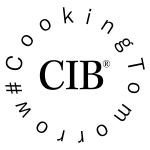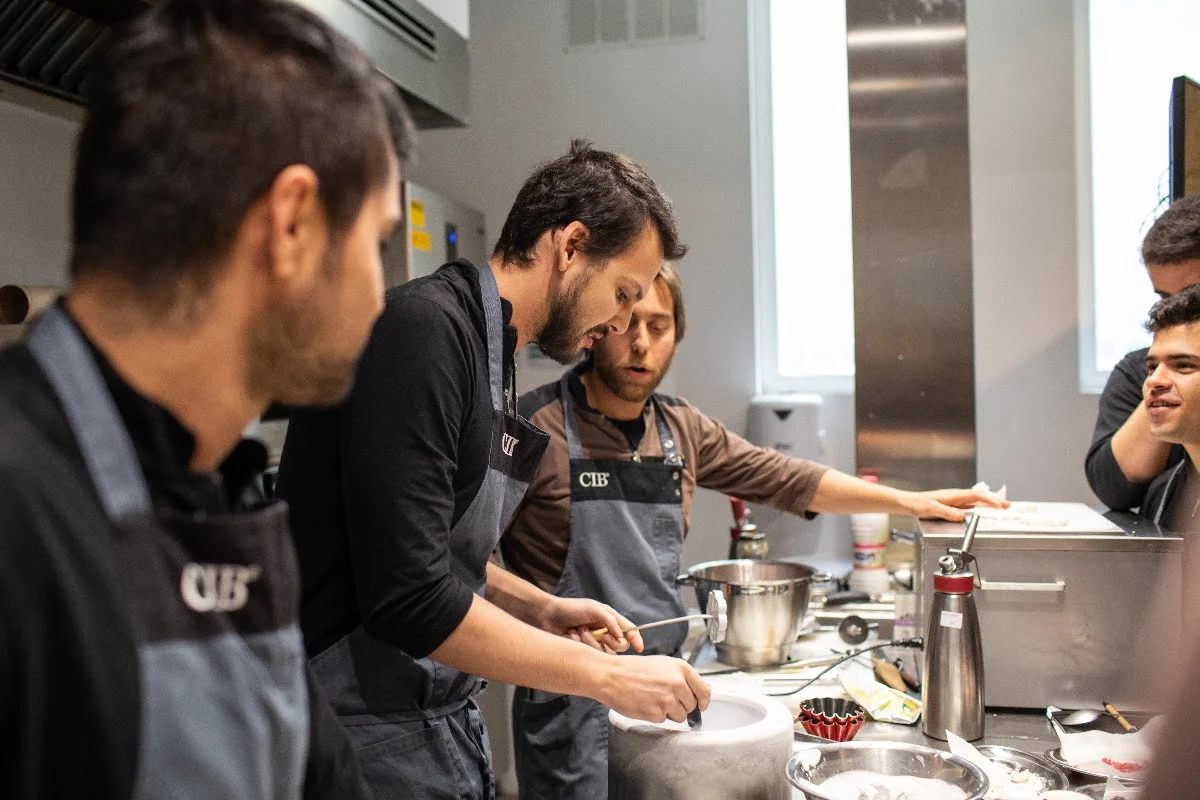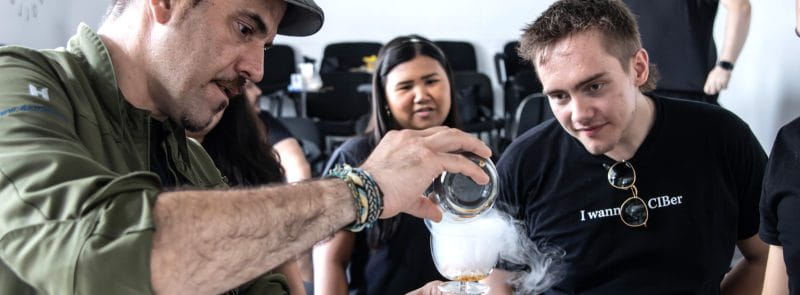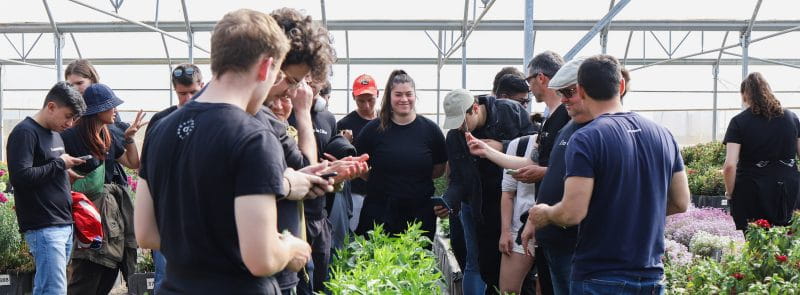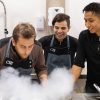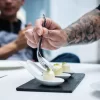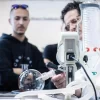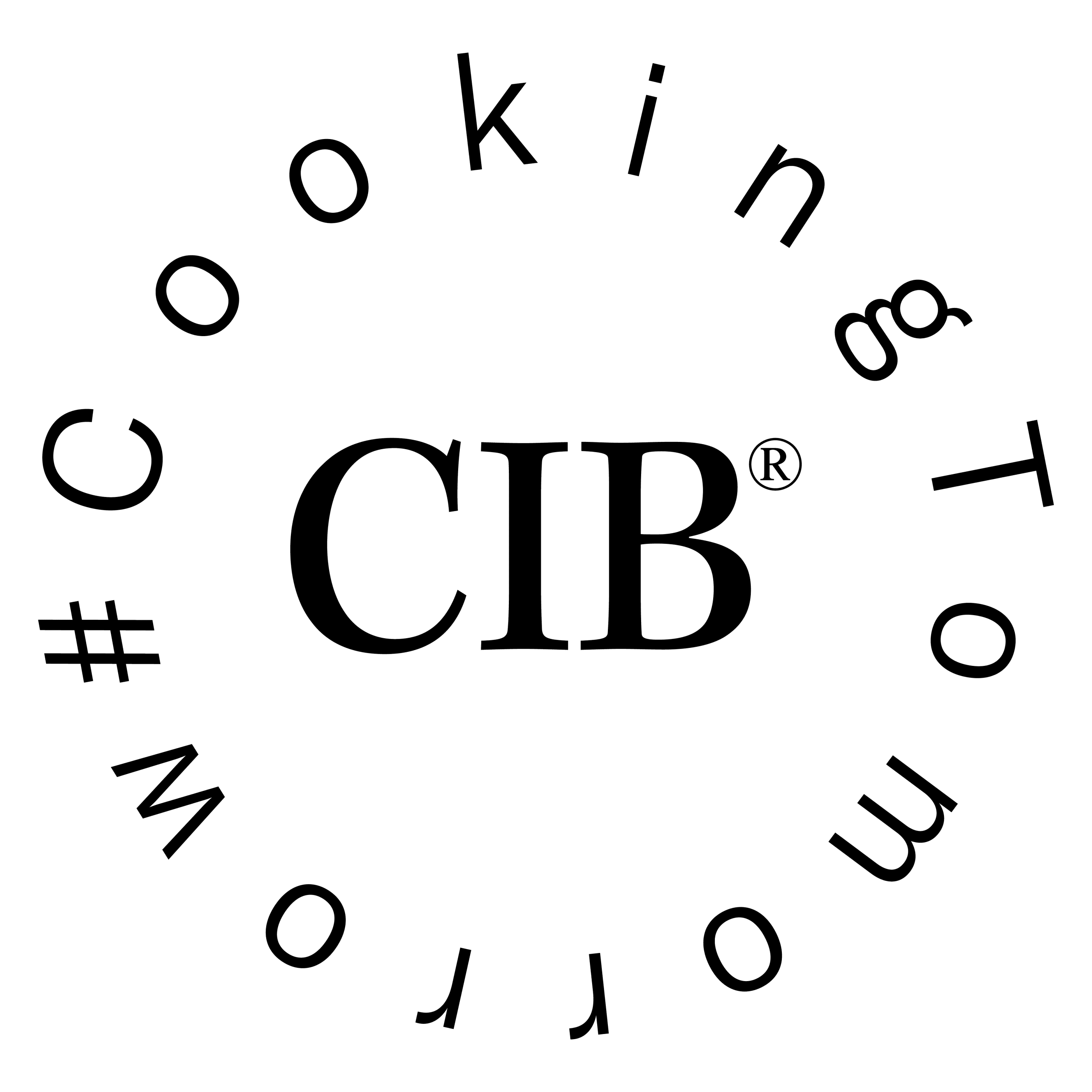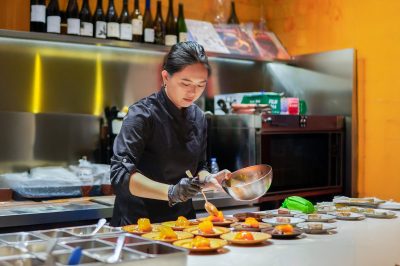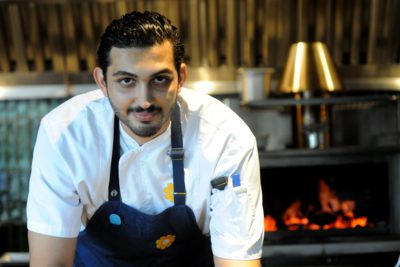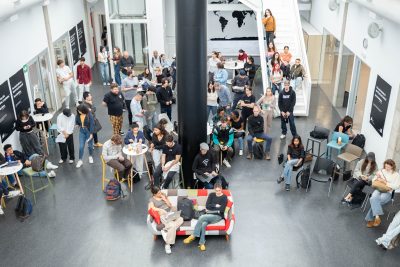At the Culinary Institute of Barcelona, we couldn’t be prouder of the achievements of our students and CIBers. In some cases, the idea of pursuing a career in cooking arises early on, while in others, it matures at CIB. This is precisely what happened in the case of Newton Vieira Rique, a student who studied the Haute Cuisine Chef Diploma and the Postgraduate in Fire and Low Temperature, surpassing himself and striving to achieve his dream: to devote his life to cooking.
What were you doing before coming to CIB?
It may sound cliché coming from a chef, but I never liked school and couldn’t understand why I was obligated to be there, earning credits for memorizing a bunch of things that I probably wouldn’t use again.
Ironically, I was invited to speak at the University of California, where I studied design, to tell them about my profession. When I studied design, everything was on computers, and almost nothing was done manually, which was what I liked.
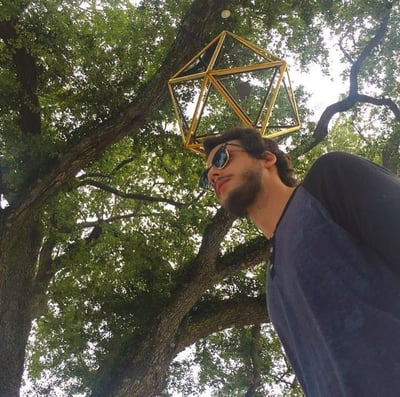
Also, I couldn’t follow the culture. I started cooking out of necessity because finding a healthy, wholesome meal on a budget was really hard. The farmer’s market was twice a week close to my apartment. I got a taste for it and never stopped. When I went back to Brazil, I was already cooking all the time and addicted to learning more. Today it is easier, but back then YouTube didn’t have half the amount of information it has today. So there was a lot of trial and error. I got into a big fight with my dad (who at that time was the one who paid my bills) for dropping out of school and chasing a “sissy” career as a cook, which was what he called it back then. He is really old-school. Cutting to the chase, he cut me off, and I was on my own.
No money, no direction and kind of lost. I went through a couple of wild months of partying, but then I met Renzo Garibaldi, a well-known Peruvian butcher and chef. He offered me the opportunity to go and work for him in Lima. So I dropped everything, spent all the money I had left, and went. It was one of the most challenging times of my life.
I had no experience, no cash, I was in a foreign country. But I was doing what I loved, so there was never a doubt in my mind that I was on the right path. No matter the cuts, the pain in my feet and the overall exhaustion, it was still worth waking up every day and going to work. One day I can go into more detail about this experience, there are a lot of funny and tragic stories.
When I went back, my dad saw that I was not messing around, and that I was serious and passionate about what I was doing. He said that if I wanted to do that, I had to at least be educated. So I found an old French cooking school in Switzerland and went.
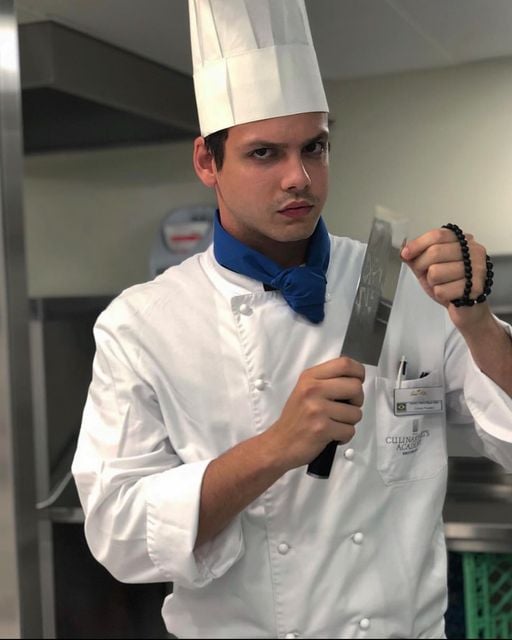
They taught really old-school techniques and had a very old-school mentality. The teachers were abusive, misogynistic, and racist. I was learning stuff from the past century. Don’t get me wrong, it is all important in a cook’s development of cook, but there is only so much butter someone can use, especially if they’re from a tropical country. That’s when I started to look for other options, and I was already studying Spanish chefs and their rule-breaking style, which was what really caught my attention. That’s when I got a job in Barcelona and found the CIB.
What made you study the PCAC and PEC·F programs?
The CIB blew my mind on day one, with all the architecture, the overall vibe and those drums and people that show up out of nowhere to greet you. I was learning 50 days in one at the CIB, unlike at my previous school.
For example, if you study Italian cuisine, you have an experienced Italian chef teaching you his craft and culture. Also, the format of the classes is intimate and interesting. At my previous school, we had a class about Spain. They talked about paella and saffron, but they never mentioned the Adriá brothers or any kind of avant-garde cuisine. There was something off.
I have always been fascinated with low temperature cooking, maybe that’s why I don’t like shows like Masterchef, they are always in a hurry. Great food takes time, and depth of flavor is a building process.
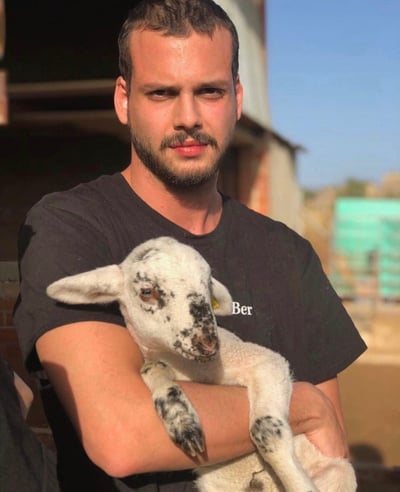
Combining it with fire, which has been my favorite way of cooking since I was a teenager, making “churrascos” for my friends; that ancestral type of cooking with the cool Mibrasa toys we have at the CIB. I knew for sure that I wanted to do the Fire and Low Temperature
How was your time at the CIB? What would you highlight?
It’s hard to put into words how amazing it was. The format and especially the people that work there. The importance they give to the whole food chain from the origin, to producers, suppliers, and cooks. The way they test us in challenges is so refreshing and motivating. The highlights have to be the Field Trips, always mind-blowing, showing us things that can’t be studied from theory, they have to be experienced. And the CIB showed me that.
What are you currently doing? What projects do you have in mind?
Right now, I’m the executive chef at Clan BBQ Restaurant in Rio. It’s an open kitchen restaurant where we cook with fire, everything from vegetables to seafood and meat. We serve 400 people every day. It’s a big operation, and it is doing so well we are already looking to expand. We recently won the award for best meat in the country, as well as for best starter with a cauliflower dish, all in just six months; and we have been added to the Michelin Guide 2024. These awards have never before been given to a restaurant that opened so recently. It has been a lot of work and stress, but that’s part of the game.
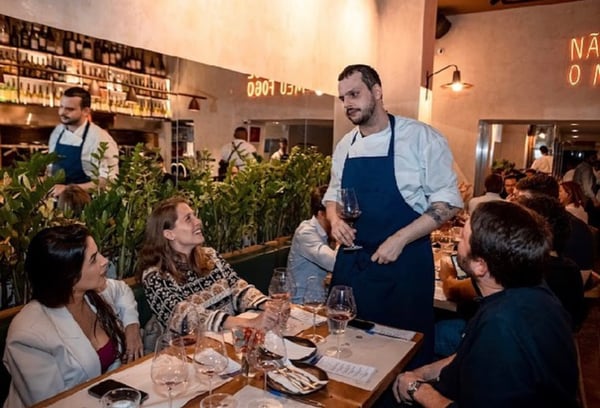
Has the CIB helped you in your transformation? Would you recommend the CIB?
It definitely made me a better cook, but mostly it made me a better human. Caring more about our ecosystem, it taught me to respect the past, but also helped prepare me for the future. Critical thinking, as well as having a really cool arsenal of techniques and references that I still use to this day in my restaurant.
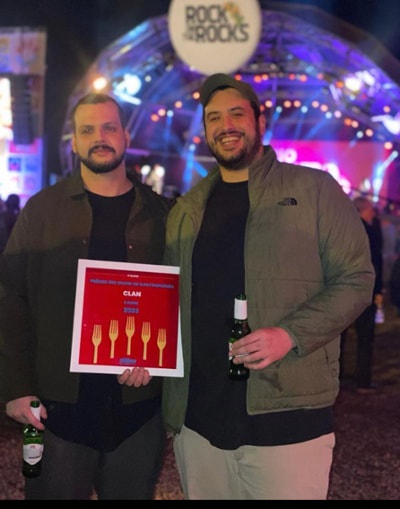
I not only recommend it, but I put myself, @newtonrique, at the disposal of anyone who wants to talk and hear about my experience firsthand. They should get in touch. I only have gratitude for the CIB.
